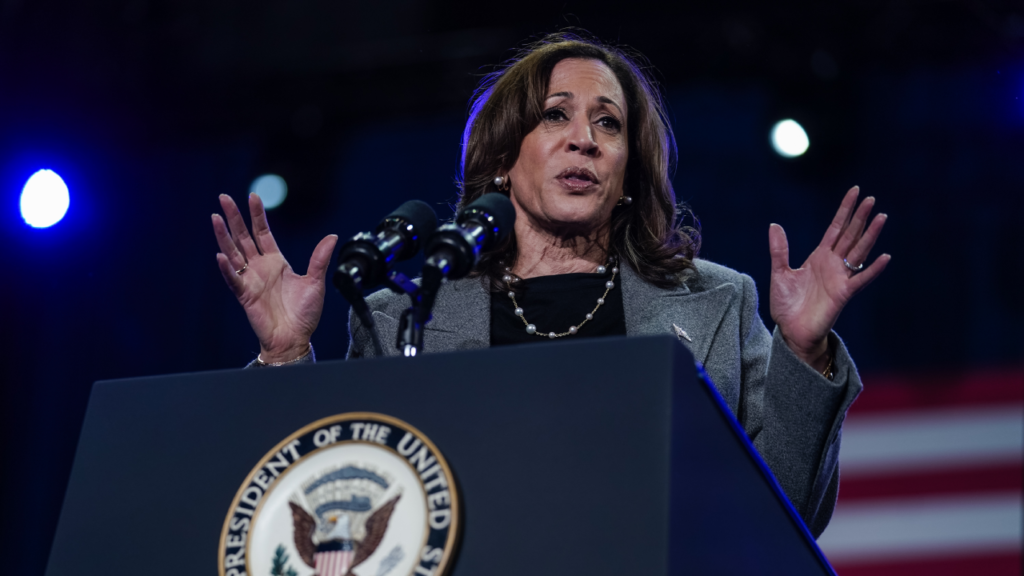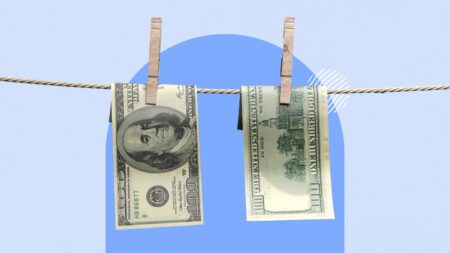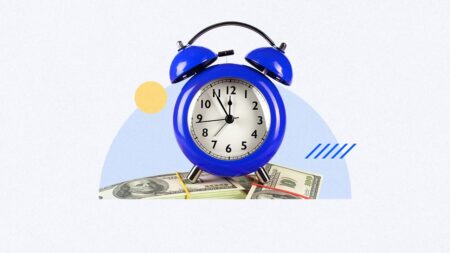Elijah Nouvelage / Stringer/ Getty Images
One of Kamala Harris’ key promises on the campaign trail has been to raise the minimum wage for workers. With many Americans struggling with stagnant wages and overall financial insecurity, an increase in the federal minimum wage might be a welcome change for workers. However, the impact on the greater economy could be complicated as small businesses could feel pressure from an increase in labor costs.
What Harris is promising
Harris promised to raise the federal minimum wage (currently $7.25/hour), as well as end the subminimum wage for tipped workers in an August 2024 rally at Las Vegas.
In her 2020 bid for president in the Democratic primary, Harris included raising the minimum to $15/hour in her platform. She also re-affirmed this figure during an interview with NBC news on October 22nd.
“At least $15 an hour, but we’ll work with Congress, right?” Harris said in the interview. “That’s something that is going through Congress.”
The federal minimum wage was last raised in 2009 from $6.55 to $7.25 per hour, which works out to $15,080 per year with a 40-hour workweek over 52 weeks a year. Bankrate’s annual Financial Freedom Survey found that Americans feel they need to earn an average of about $186,000 a year to live comfortably, suggesting that the minimum wage is currently well below the threshold for comfortable living for those who depend on it.
How raising the minimum wage will impact small businesses
Raising the minimum wage will increase both compensation for workers and the cost of labor for businesses. Having a higher wage can help small businesses attract workers and reduce employee stress over financial security. On the consumer end, it can increase the amount of money minimum wage workers have to spend.
On the other hand, increased labor costs can lead to an increase in prices, which can be an issue for all businesses, especially those with tight profit margins. Some experts warn that in order to maintain a profit, businesses will have to keep a smaller staff, reduce hours or automate tasks where possible.
In California, which raised the minimum wage to $20 in 2023, the fast food industry lost over 10,000 jobs, according to the Hoover Institute. Restaurant prices have also risen across the state, according to a report by Datassential. Additionally, any plans to raise the minimum wage needs to pass through Congress and could fail at any stage of the legislative process.
Bankrate’s expert take on raising the minimum wage
“Because Congress has failed to raise the federal minimum wage since the last increase taking effect in 2009, such legislation is unlikely to win passage in what may well continue to be a divided government,” says Mark Hamrick, senior economic analyst for Bankrate. “Small businesses which would be subject to a higher minimum could be negatively impacted. But we also know that even absent an increase in the federal minimum, wage costs and retention of labor have been key challenges for small business operators.”
Harris’ minimum wage promise: Advantages
- Minimum wage workers will be able to make more money.
- Workers on the minimum wage will have more to spend.
- Businesses may have an easier time hiring and attracting workers.
Harris’ minimum wage promise: Disadvantages
- Labor costs will increase.
- The overall increase of labor costs can translate into higher prices across the board.
- Businesses may end up hiring fewer workers or automating, causing an overall loss of jobs.
The bottom line
Harris intends to make big changes to the federal minimum wage should she get elected. The changes could mean a lot for the spending power of many Americans. However, an increased minimum wage would be difficult to pass through congress, and some say the increase could have adverse effects on small businesses and the greater economy in general.
Read the full article here
















